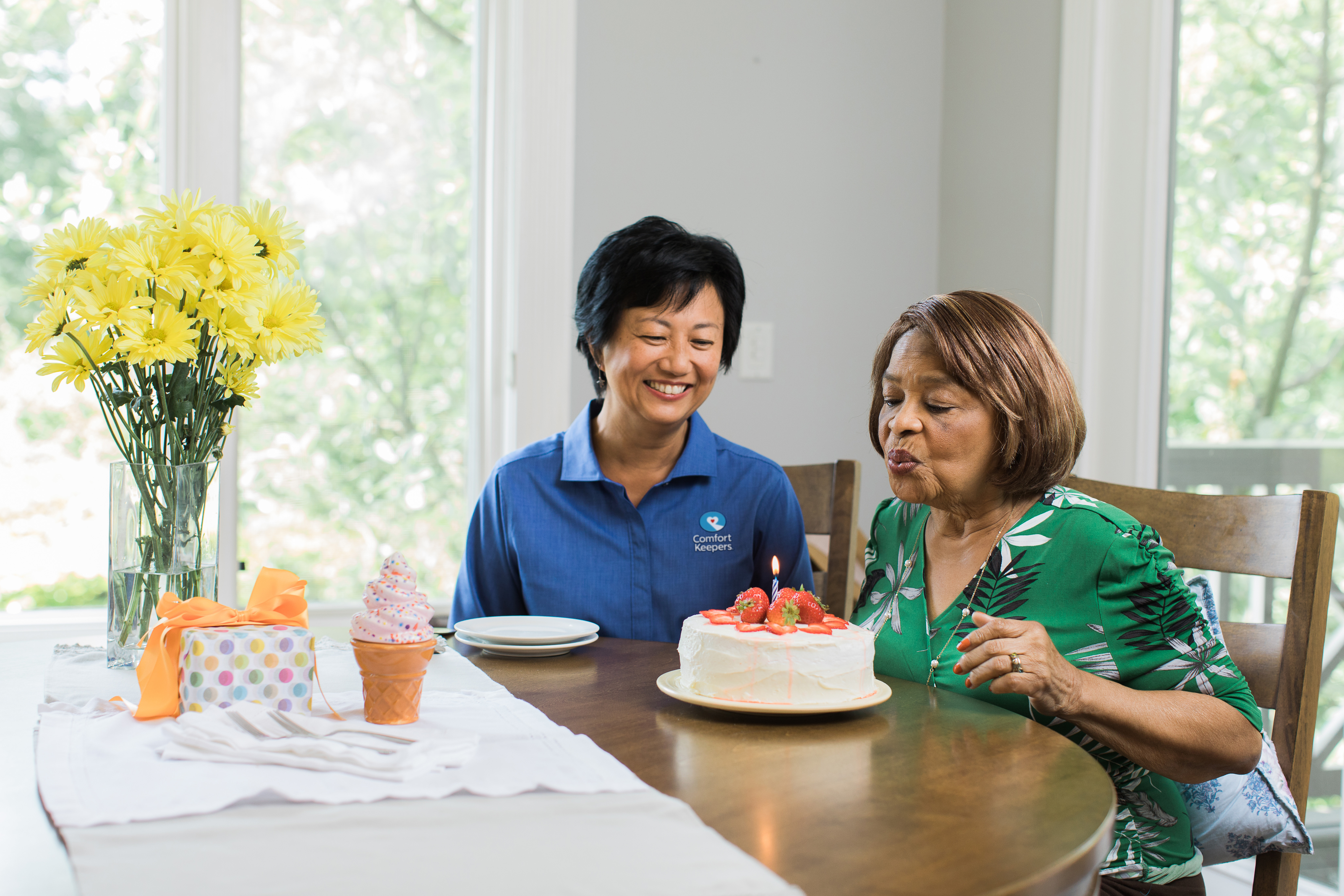In-Home Respite Care for Seniors in Pittsford, NY
In-home respite care for seniors offers a break when you're feeling overwhelmed as a caregiver. It's a short-term service, designed to give you or your family a much-needed break. Skilled caregivers step in, ensuring your loved one's safety and comfort right in their own home. This service is flexible, tailored to fit your schedule and budget.
It's okay to admit you need a break. Remember, caregiver burnout affects 66% of unpaid caregivers, which are often family members. Seek support, it's out there for you.

What is Respite Care for Seniors?
Understanding respite care for seniors is important, especially if you're a primary caregiver needing a temporary break from your caregiving duties. It's a short-term home care service that provides much-needed relief, allowing you to attend to personal matters, work obligations, or other responsibilities. The importance of this service lies in its ability to support family caregivers, making sure they have the opportunity to recharge without worrying about their loved one's care.
One of the major benefits of respite care is its flexibility. You can schedule services for a few hours, overnight, or even a few days, according to your needs. This flexible scheduling is a huge benefit, especially for those balancing multiple commitments.
Moreover, respite care offers professional assistance. Trained caregivers step into your shoes, providing the necessary care for your loved one. This means you're not only getting a break but also the peace of mind that comes with knowing your loved one is in capable, experienced hands.
To summarize, respite care provides temporary relief with a touch of professional assistance, creating a supportive environment for both you and your family.
Caregiver Burnout
While caring for a loved one can be important, it's also essential to recognize the signs of caregiver burnout, a state of physical, mental, and emotional exhaustion that affects approximately 66% of unpaid caregivers. It's important to be mindful of your mental health, as burnout can potentially lead to serious health issues.
Implementing self-care strategies is important. Don't neglect your personal health appointments, make sure you're enjoying a balanced diet, and make time for physical activity and rest. Emotional support is also important; consider discussing your experiences with a therapist, social worker, or supportive friend. It's okay to feel negative emotions, acknowledging them is part of the healing process.
Stress management is vital. Realistic goal-setting can help you manage your tasks without feeling overwhelmed. Remember, it's okay to ask for help and accept it when offered. It's not a sign of weakness, but a coping technique that can alleviate burnout.
Lastly, never underestimate the power of mental health awareness. Understanding the signs and symptoms of burnout and ways to combat it can help you maintain your well-being while providing the care your loved one needs. Don't forget, taking care of yourself is the first step in taking care of others.
Here are some signs that you or your family members may be experiencing caregiver burnout:
- Irritability, stress, and exhaustion occur frequently
- Lack of motivation
- Trouble getting quality sleep
- Using unhealthy coping mechanisms, like drug use, alcohol, overeating, etc.
- Isolation and withdrawal from family and friends
There are many other signs that you're burning out. Analyze your day, your emotions, your stress levels, and decide whether you need a break or not. Don't let the stress get to the point of burning out completely, give yourself the break you need.

How to Get Respite Care
To start your respite care planning, reach out to your local Comfort Keepers home care office. A care coordinator will offer you a free, no-obligation home care consultation to assess your needs and explain the respite care options available. Don't worry about the respite care costs, as they're dedicated to working with you to find a solution that fits within your budget.
Even if you're in a rush, Comfort Keepers can expedite the planning and scheduling process. They do their best to ensure a caregiver is available for your loved one as soon as possible. Rest assured, all respite care providers are thoroughly screened and selected, so your loved one is in safe hands.
If your loved one is a veteran, they can reach out to their local VA office to learn more about how many respite hours they can get. You can also contact us and we would be happy to help you through the process of reaching the VA and setting up respite hours for your loved one.
Different Types of Respite Care
Understanding the variety of respite care options can help you make the best choice for your loved one's needs.
You might consider respite care at home, adult day services, or respite care facilities.
Each type has its own benefits and potential drawbacks, and we'll explore these in the following sections.

Respite care at home
If you're caring for a loved one at home, various types of respite care can be a lifesaver, providing much-needed breaks and support.
In-home respite care offers senior companionship, ensuring your loved one is safe and engaged. This type of care also provides home assistance, helping with personal care tasks such as bathing, dressing, grooming, and medication management.
Importantly, finding a reliable caregiver through a trusted home health agency or local department on aging is crucial.
Here are some organizations that can help you find respite care, or you can give us a call and we would be happy to help you find respite care for your loved one:
Adult day services
Apart from in-home respite care, taking your loved one to an adult day center can be a great option, offering them a chance to socialize and participate in various activities under the supervision of trained professionals. These centers promote independence while ensuring safety, making them an ideal option for seniors.
With an emphasis on social interaction, these centers provide an environment that fosters community engagement and mental stimulation. Activities may include exercise, music classes, and meals, all designed to slow the progression of conditions like Alzheimer's and dementia. Additionally, some centers even offer pick-up and drop-off services for added convenience.
Respite care facilities
When you need a break or have to travel, respite care facilities can provide a safe and comfortable environment for your loved one. These facilities offer short-term stays for respite care, also known as short-term assisted living. This is one of the respite care options you could consider.
The respite care benefits are immense. Trained staff provide round-the-clock care, assist with meals, medications, dressing, bathing, and exercise. Housekeeping services are usually included, adding to the comfort of your loved one. Respite care activities might include hair styling, gym access, religious services, and supervised outings.
The significance of respite care lies in its provision of thorough, professional care. Although respite care costs can vary, the peace of mind and safety it provides is invaluable.
Respite Care Obstacles
Finding the way to respite care can present a series of obstacles, beginning with the challenging admission that you, as a caregiver, need a break for your own well-being. An overwhelming sense of caregiver guilt may consume you, making the idea of stepping away feel as if you're abandoning your loved one.
Trust issues can further complicate matters. You might find it hard to believe that anyone else can provide the level of care and attention your loved one needs. It's normal to feel this way, but remember, a trustworthy respite caregiver can bring new energy and stimulation for your senior.
Funding options for respite care can also seem overwhelming. However, there are resources available that can ease this burden. Don't hesitate to ask for help in finding financial assistance.
Emergency preparedness is another key consideration. Establishing a relationship with a respite caregiver now can be a lifeline if an unexpected situation arises.









